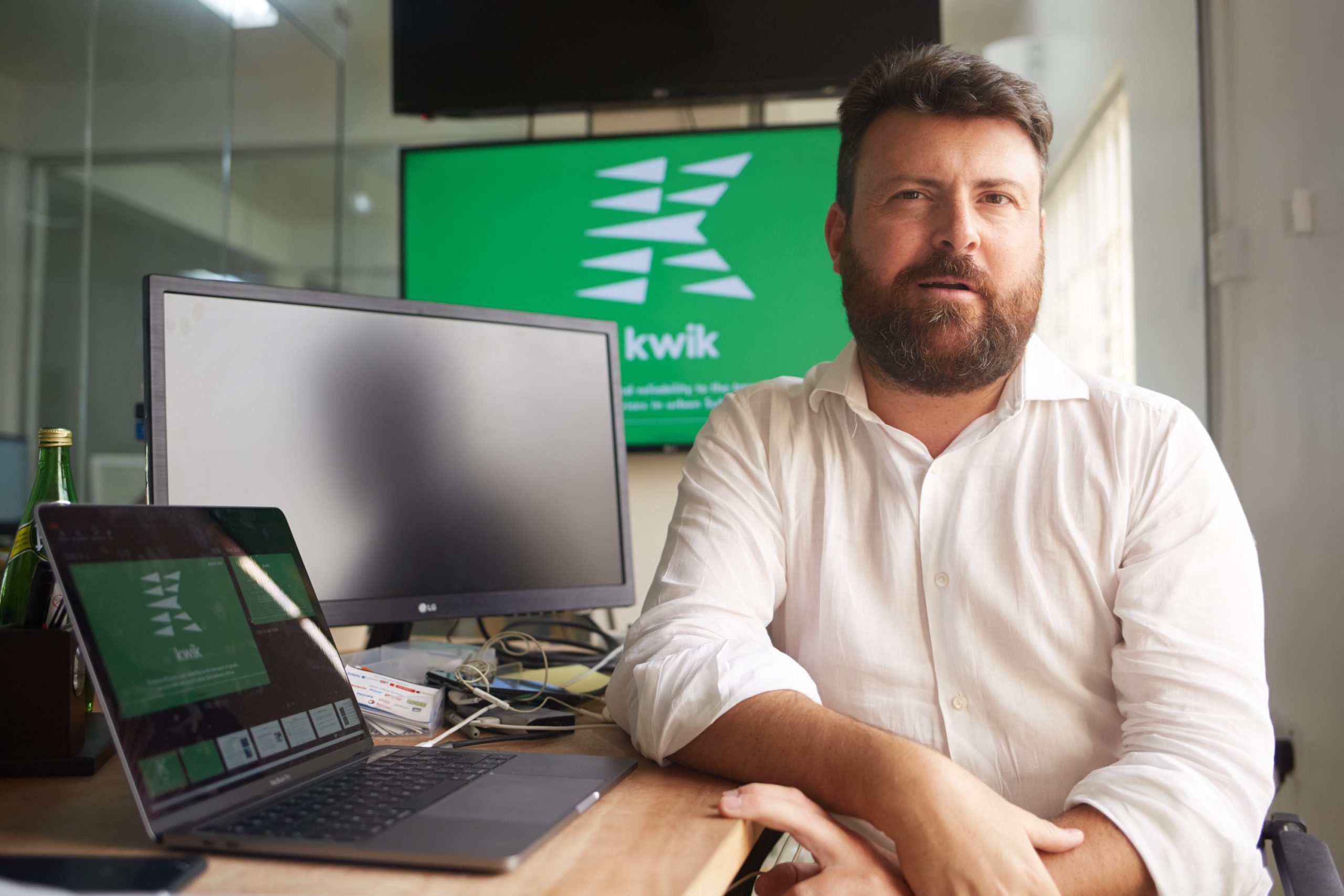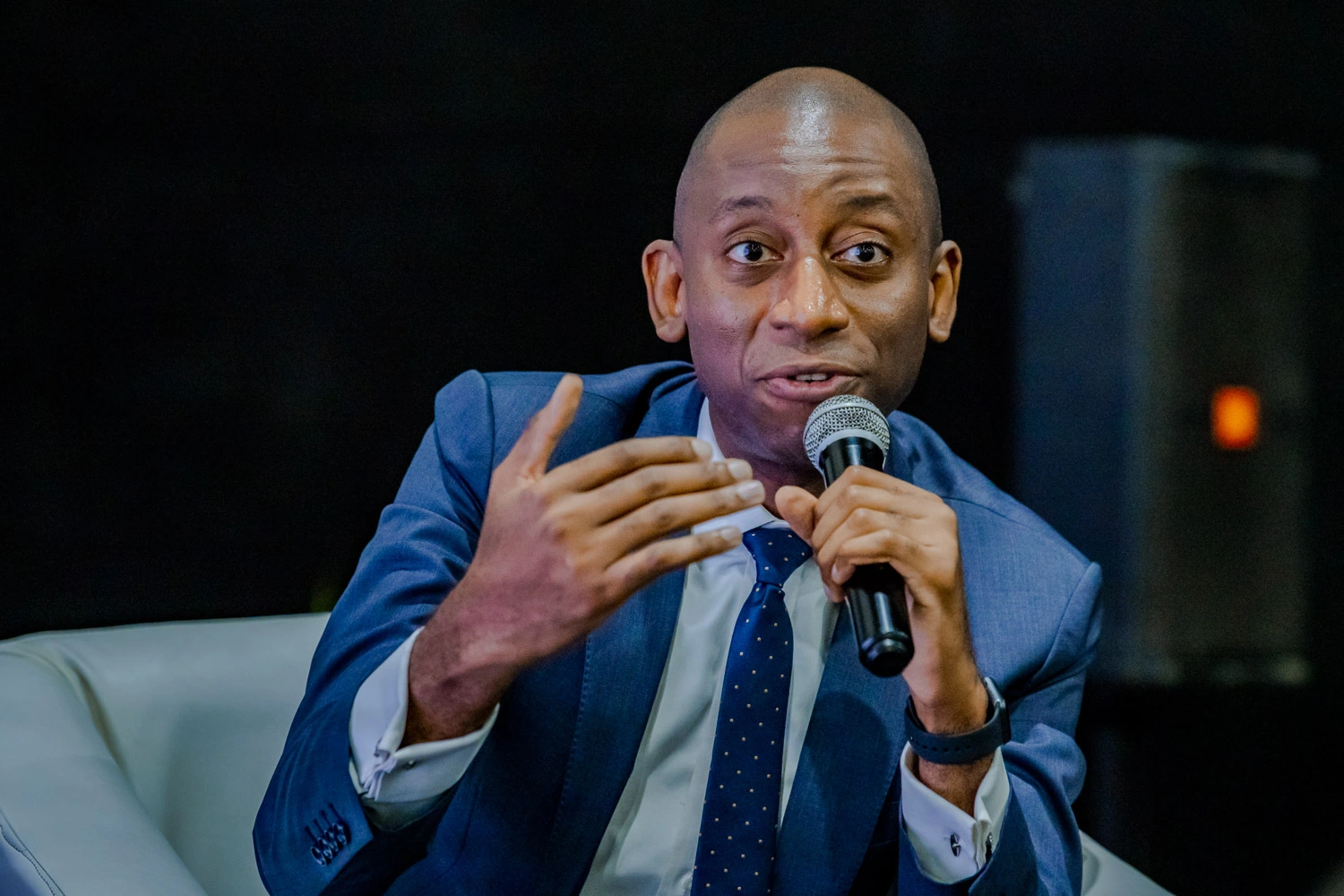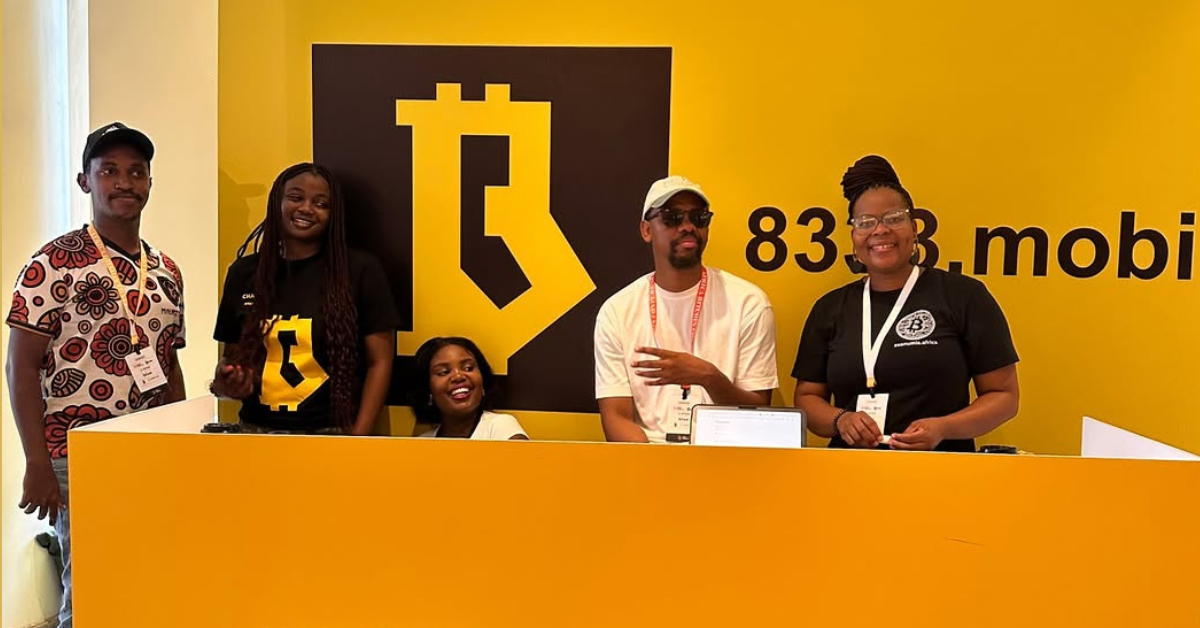The Kwik cofounder talks about the state of funding in Africa, a new phase for the African tech ecosystem, and what consolidation could mean for African startups.
Romain Poirot-Lellig comes across as a complex man. This assumption could be because of his vast experience in the tech industry, which spans three continents. At the age of 14, he started a journalistic career with tech magazines in France that saw him interview the CEO of Apple Computers Europe in that same year. At 22, he switched to raising funds for startups, leveraging the relationships he had built as a journalist.
After a tour across Asia, he returned to France to study international relations and corporate management. By 2018, he had cofounded Kwik, a logistics company, with Olivier Decrock in Lagos. Before that, he had served as a European Union diplomat in Asian countries for ten years.
Seated in his Lagos office, he talks to TechCabal about how acquisitions can improve Africa’s tech ecosystem.
This interview has been edited for clarity and consistency.
Muktar: In your opinion, how is the current state of funding across the African tech ecosystem?
Romain: There’s been a general drop in the valuation of tech companies because, unlike before, investors are taking a stronger look at the companies. They are paying more attention to key performance indicators and demanding much more discipline and rigour. I think it’s an opportunity for the African tech ecosystem to demonstrate that it’s growing into a new phase of maturity. I think it’s good because, from my experience, cheap money has a lot of downsides.
I have seen it in other ecosystems in the past, particularly in France and the US. There is going to be a line of division between startups that have managed to scale up reasonably and those that have not done so and won’t be able to do so because funding is scarce.
So what we can expect is that startups that are in the first category are going to play a leading role in their verticals. They’re going to take about 20 of the startups that have not been able to scale up but may present some interest in terms of technology, market share, and staff. Hopefully, they will come out of this stronger and with the capacity to branch out and expand.
Read also: Kwik held talks in 2022 to acquire Gokada
Muktar: In your recent speech at the World Bank, you talked about the need for organised consolidation in the African tech ecosystem. Can you shed some light on what you mean by “organised consolidation”?
Romain: A lot of startups get created and die. It’s part of the learning curve, and it never stops. Every tech ecosystem is built on the principle that most startups don’t succeed. Startup failure is not a big deal as long as you learn from it and can innovate with your next company.
It shouldn’t be seen as a failure of the ecosystem; it should be seen as a sign that the ecosystem is evolving and people are learning from it. Things will get better with time because people are getting stronger and better at what they do.
When I talk about organised consolidation, I am referring to acquisitions. It’s important that there are acquisitions in the African tech ecosystem because it will show that investing in Africa is a worthwhile concept and that there is an acquisition market for companies that are not so successful.
A lot of firms and wealthy individuals have taken risks by investing in African startups in the past 10 years. Although not every investment will bring returns, there needs to be a healthy balance. An acquisition market will allow investors to recoup some of their losses while also vindicating founders.
Read also: Nigeria’s logistic market claims another startup as Hytch shuts down
Muktar: How would these acquisitions happen?
Romain: It can happen in different ways. For a long time, valuations have been exaggerated, and it is a positive step that valuations are becoming more linked to fundamentals and KPIs. Consolidation can take place in various ways.
Firstly, it can happen in the form of geographical expansion. A startup in Lagos could acquire another startup that fits its needs in the Congo or Kenya. Another could be the acquisition of intellectual property. A company could develop a brand or a piece of software that you want to use. They may not be able to access funding anymore, but you can purchase their software at a reasonable price, and it’s going to add value to your own company. The same logic could also be applied to talent acquisition.
Generally, an increase in acquisitions could help the ecosystem move forward. I am sure that for a lot of company executives, it’s better to join another company than go bankrupt.
Read also: Startup acquisitions in African tech grew by 41% in Q3 2022
The global tech VC market is experiencing a downturn, and as an ecosystem with a heavy reliance on foreign investors, Africa is not exempt. Experts have predicted that funding sources might dry up in what will be a tough year. However, Romain’s advice on “organised consolidation” offers a gleam of light in a darkening tunnel, a possible way of salvation for troubled startups.




















